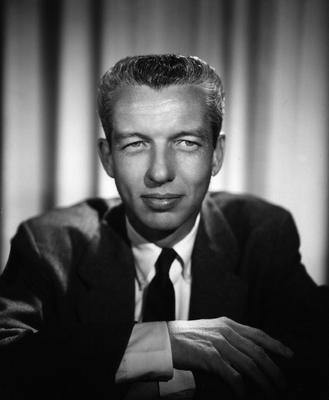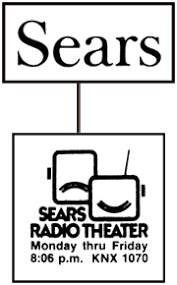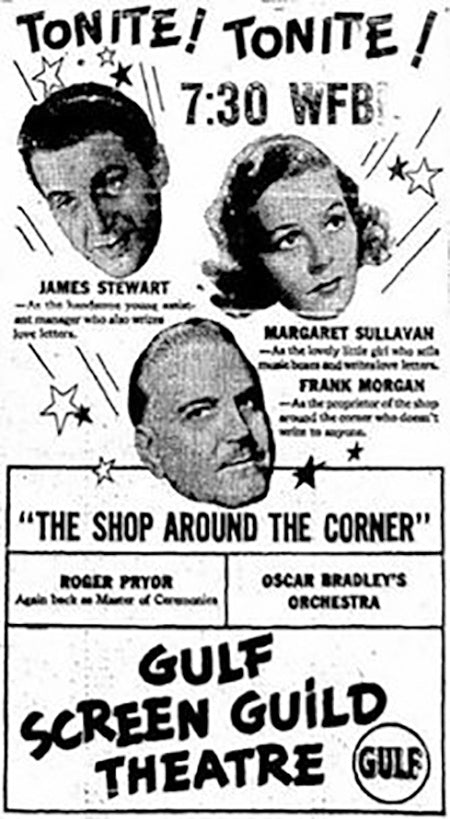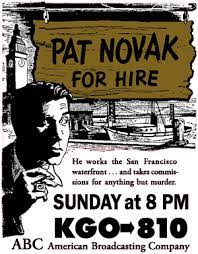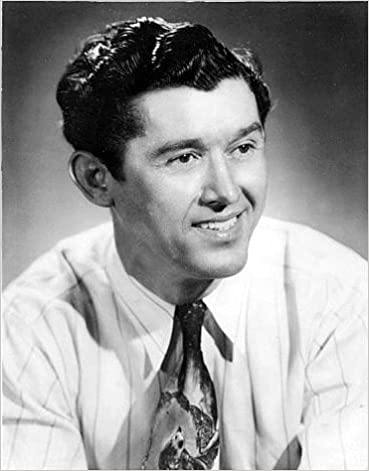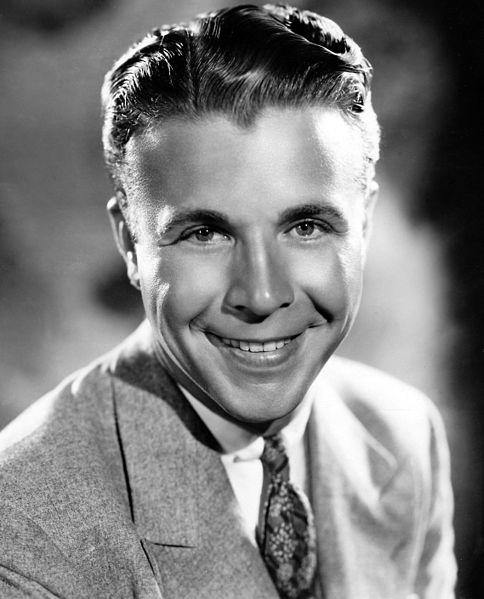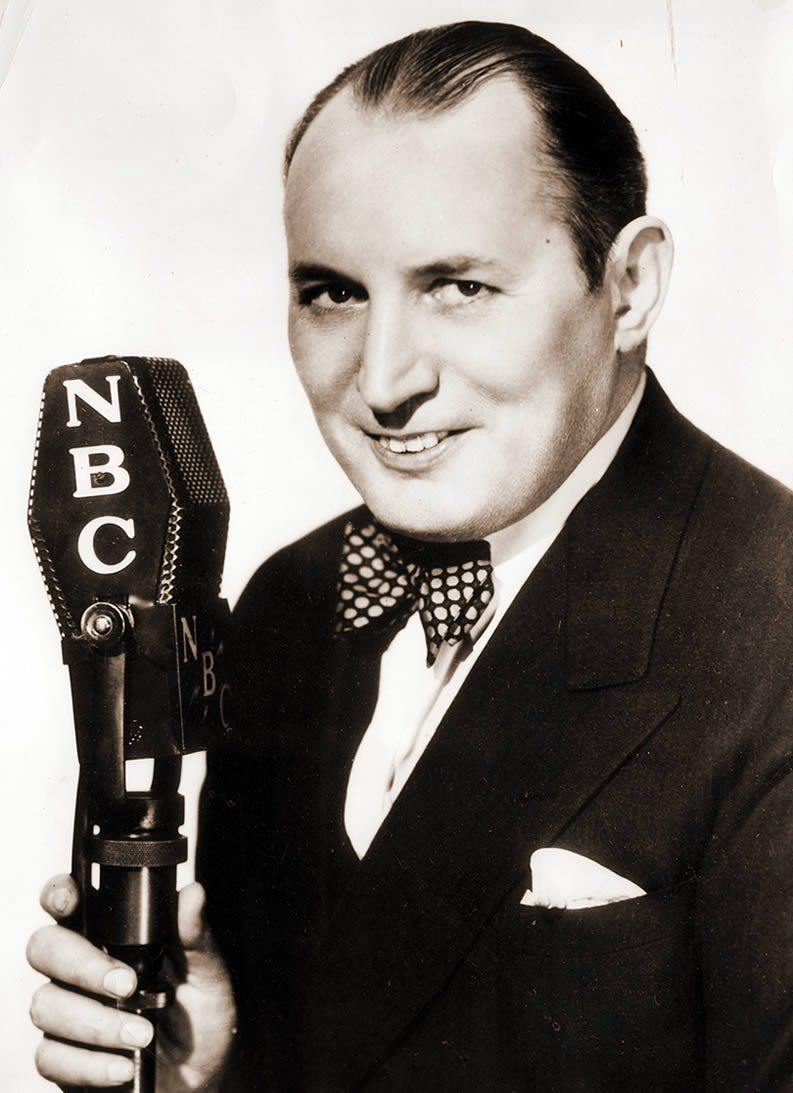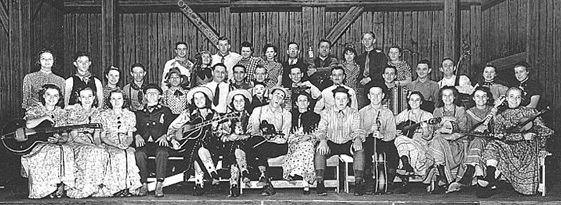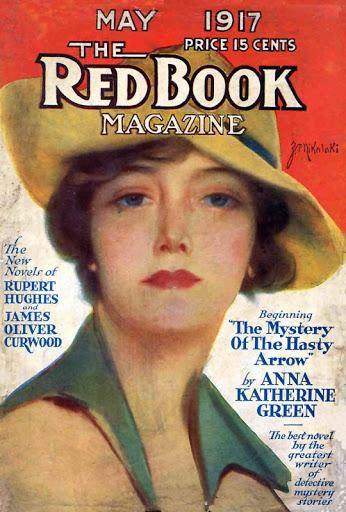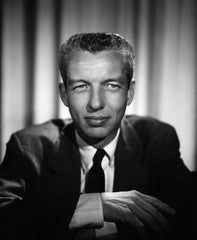 For over twelve years, from 1949 through 1962 (including a one year hiatus in 1954-1955), this series recounted the cases "the man with the action-packed expense account, America’s fabulous freelance insurance investigator, Johnny Dollar". Johnny was an accomplished 'padder' of his expense account. The name of the show derives from the fact that he closed each show by totaling his expense account, and signing it "End of report... Yours Truly, Johnny Dollar".
For over twelve years, from 1949 through 1962 (including a one year hiatus in 1954-1955), this series recounted the cases "the man with the action-packed expense account, America’s fabulous freelance insurance investigator, Johnny Dollar". Johnny was an accomplished 'padder' of his expense account. The name of the show derives from the fact that he closed each show by totaling his expense account, and signing it "End of report... Yours Truly, Johnny Dollar".
Terry Salomonson in his authoritative "A Radio Broadcast Log of the Drama Program Yours Truly, Johnny Dollar", notes that the original working title was "Yours Truly, Lloyd London". Salomonson writes "Lloyd London was scratched out of the body of (the Dick Powell) audition script and Johnny Dollar was written in. Thus the show was re-titled on this script and the main character was renamed. Why this was done was unclear – possibly to prevent a legal run-in with Lloyd’s of London Insurance Company." Although based in Hartford, Connecticut, the insurance capital of the world, freelancer Johnny Dollar managed to get around quite a bit – his adventures taking him all over the world.
There were some unusual devices used in the show that help set it apart from other shows. There was no partner, assistant, or secretary for Johnny. The character closest to a continuing role was that of Pat McCracken of the Universal Adjustment Bureau, who assigned Johnny many of his cases. Another atypical aspect gave the show additional credibility – frequently, characters on the show would mention that they had heard about Johnny’s cases on the radio. Johnny often used his time when filling out his expense accounts to give the audience background information or to express his thoughts about the current case.
No fewer than eight actors played Johnny Dollar. Dick Powell, of Rogue’s Gallery fame, cut the original audition tape, but chose to do Richard Diamond, Private Detective instead. Gerald Mohr, of The Adventures of Philip Marlowe fame, auditioned in 1955, prior to Bob Bailey getting the title role. Through the first three actors to play Johnny Dollar (Charles Russell, Edmond O'Brien, and John Lund), there was little to distinguish the series from many other radio detective series. Dollar was just another hard-boiled detective in a medium that was overloaded with the stereotype. Charles Russell, the first to play the role, would throw silver dollars to bellboys and waiters. Luckily, this trite gimmick did not survive long.
On October 3, 1955, after a hiatus of over a year, the show came back with a vengeance. A new production team, including director/writer Jack Johnstone, a new star, Bob Bailey, from the radio series Let George Do It, and a new format would set the series apart from its competitors. Johnny's cases were now a continuing serial, five days a week, for fifteen minutes each evening. With 75 minutes of airtime, minus commercials and openings and closings, there was sufficient time to develop good storylines and interesting characters.
During this time, Yours Truly, Johnny Dollar attracted some of the best writers in Hollywood, including Jack Johnstone, E. Jack Neuman (using the pen name John Dawson), Robert Ryf, and Les Crutchfield. Bob Bailey also wrote a script while he was playing Johnny Dollar. He used the pen name Robert Bainter (Bainter was his middle name) as the scriptwriter for "The Carmen Kringle Matter", which was aired on Saturday, December 21, 1957 on the West Coast, and on the following day for the rest of the country.
Bob Bailey, generally thought of as the most popular of the Johnny Dollars, brought a new interpretation to the character – tough, but not hard-boiled; streetwise, but not overly cynical, Bailey's Dollar was smart and gritty when he had to be. But Bailey's Johnny Dollar was also human. His character would get emotionally involved in a number of his cases. He had a streak of impatience, and would occasionally not fully listen to a witness and rush off on a tangent before realizing his mistake.
The weekday serialized episodes are generally acknowledged as some of the finest radio detective shows ever produced. There were fifty six multi-part shows in all: fifty four five-part shows, one six-part show, and one nine-part show. The serialized episodes continued until November 2, 1956 when the series again reverted to a once a week, thirty minute format. Bob Bailey continued in the lead, until "The Empty Threat Matter" of November 27, 1960, when the Hollywood run ended.
The guest stars and supporting casts were always first rate, attracting the best radio actors in both Los Angeles and New York. Pat McCracken was played by several actors – most frequently, by Larry Dobkin. Particularly noteworthy was the work of Virginia Gregg, who played many roles, including Johnny's girlfriend Betty Lewis. Harry Bartell was also a frequent guest, who did many of the Spanish dialect roles when Johnny went to a Latin American country. Other frequent guest performers were Parley Baer, Tony Barrett, John Dehner, Don Diamond, Sam Edwards, Herb Ellis, Frank Gerstle, Stacy Harris, Jack Kruschen, Forrest Lewis, Howard McNear, Marvin Miller, Jeanette Nolan, Vic Perrin, Barney Phillips, Jean Tatum, Russell Thomson, Ben Wright, and Will Wright. Vincent Price co-starred as himself in "The Price of Fame Matter" and went to Europe with Johnny on the case.
In December 1960, the show moved to New York. Robert Readick started the New York run as Dollar, but only lasted a short while. Jack Johnstone continued to write for the show and submitted scripts from California. Johnstone wrote about 350 Johnny Dollar scripts under his own name and his pen names Sam Dawson and Jonathan Bundy. Johnstone wrote the last episodes of both Yours Truly, Johnny Dollar and Suspense. He used the Bundy pen name when writing the last Suspense episode, "Devilstone".
And so, an era passed. Yours Truly, Johnny Dollar was the last continuing detective series of the Golden Age of Radio. Mandel Kramer was the last Johnny Dollar, and a close second in popularity to Bailey, when the final episode, "The Tip-Off Matter", was aired on September 30, 1962.

